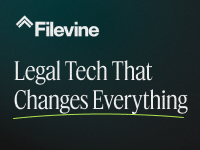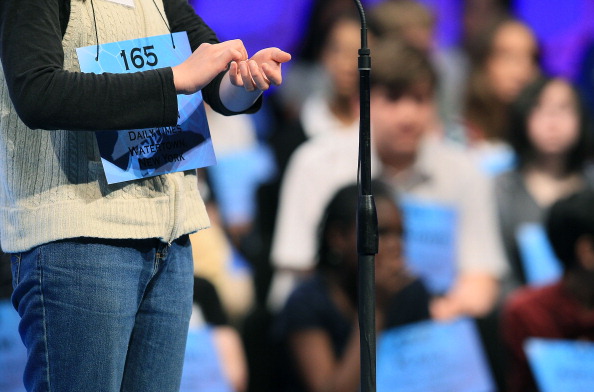
The official image of 2020 bar examiners.
New York is barreling toward an online bar exam in October and a lot of people are concerned that there doesn’t seem to be much urgency around proving that this is going to work. In that spirit, the New York State Law Graduate Coalition & United for Diploma Privilege New York participated in a virtual meeting of the NYSBA Committee on Legal Education and Admission to the Bar on August 19 and raised some concerns over the upcoming plans.
NY Board of Law Examiners Executive Director (and NCBE Trustee) John McAlary spent a good deal of the meeting assuaging concerns and according to a letter from the NYSLGC his answer

How Filevine Bakes AI Into Every Layer Of Your Case Management
It’s like having a junior associate who’s never off the clock.
For example, in downplaying concerns that the ExamSoft platform may not be ready to handle the stress of the October exam date and the multiple jurisdictions simultaneously taking tests, McAlary asserted that this wasn’t really new ground because the separate NYLE test is already handled through ExamSoft without incident. Which is true!
But…
The NYLE and the October exam are materially different in several respects, The NYLE is a multiple choice exam administered four times per year to far fewer examinees at once, and without the use of AI or human proctoring, By contrast, this October exam will be administered across at least 19 jurisdictions and to at least 30,000 prospective lawyers simultaneously. BOLE’s experience with ExamSoft’s software in the past (Examplify for the NYLE) is nowhere near as predictive of how their ‘ExamMonitor” software will perform in October as is ExamMonitor’s performance during the Michigan Exam.
This is akin to saying “we’re not worried about the E.T. game because we’ve never had a problem with Donkey Kong.” One ExamSoft product that doesn’t require an internet connection or proctoring is not, in fact, indicative that their bar exam product that does need all that will work the same. Indeed, Michigan suggests it might have significant issues. McAlary prefaced his comments by noting that he was “not a tech guy,” but we’re setting the tech literacy bar awfully low to accept that excuse here.

Paying for Law School in 2025: A Straight-Talk Playbook
Juno has consistently secured the best private loan deals for students at the Top MBA programs since 2018—now they’re bringing that same offer to law students, at no cost. Students can check their personalized offers at juno.us/atl This article is for general information only and is not personal financial advice.
McAlary also complained about Extegrity CEO, Greg Sarab, publicly dropping out of the online bar exam game, explaining that it was infeasible to produce a platform that did everything state bars wanted in the requisite timeframe. The statement raised a number of eyebrows that remain in full raise mode following the troika of Indiana, Nevada, and Michigan struggles. From McAlary’s standpoint, this cast an unfounded cloud over the online bar exam process and amounted to nothing more than sour grapes from a company that no jurisdiction was planning to use in the first place.
Maybe… but even if no one sought them out for the first time during the pandemic, the fact that Extegrity has pre-existing relationships with nine jurisdictions makes it hard to believe that no one was trying to work with them. At the very least a state would call its existing in-person testing software provider to ask, right? Folks don’t just say, “This company is our trusted partner for exam software in person but now that we’re going online there’s no way we’d talk to these freaks!” Not to speculate, but this sounds a lot like a talking point from an organization grumbling that its founder has now opened up a rival company.
But it’s one thing to be a test administrator and not be a tech guy and another to “not be a test guy.” One of the most consistent complaints we receive about online test procedures is the rule banning scratch paper. To this concern McAlary pointed out that scratch paper is banned now, which misses the point:
While for the last 4 years BOLE has not allowed examinees to bring “scrap paper”, examinees have always been able to write in the margins and annotate questions or text in the MBE, MPT and MEE booklets themselves. This is precisely why every bar prep company has taught examinees that they must draw diagrams, annotate, circle, and highlight key points in order to pass the exam.
As if the bar exam wasn’t abstracted from the real-world practice of law enough, now you have to breakdown long, detailed passages from memory. Get used to doing that pantomime writing thing the spelling bee kids do!

‘Blackacre was conveyed to his grandkids with remainder to…’ (Photo by Mark Wilson/Getty Images)
Look, I get that the logic is that an online proctor won’t be able to tell if any loose sheet of paper may be illicit notes — just as they can’t guarantee you aren’t storing all your notes in the bathroom — but the fixation on preventing cheating runs afoul of basic test-taking. That every prep company trains these applicants to make notes in the booklet proves the problem because it’s established and accepted that many of the questions are crafted in deliberately confusing ways. Which is the point of a hard test! But it’s also why note-taking is expected to be a part of the process.
Just because online exams are better options than in-person exams doesn’t mean they’re above scrutiny. And conversations like these don’t provide a lot of confidence that the process is being approached with the healthy skepticism administrators need to apply.
Check out the whole letter on the next page.
Earlier: So… Are We Going To Have A Test Of This October Bar Exam Software Or Not?
Testing Software Provider Drops Out Of Online Bar Exams Citing Feasibility
 Joe Patrice is a senior editor at Above the Law and co-host of Thinking Like A Lawyer. Feel free to email any tips, questions, or comments. Follow him on Twitter if you’re interested in law, politics, and a healthy dose of college sports news. Joe also serves as a Managing Director at RPN Executive Search.
Joe Patrice is a senior editor at Above the Law and co-host of Thinking Like A Lawyer. Feel free to email any tips, questions, or comments. Follow him on Twitter if you’re interested in law, politics, and a healthy dose of college sports news. Joe also serves as a Managing Director at RPN Executive Search.